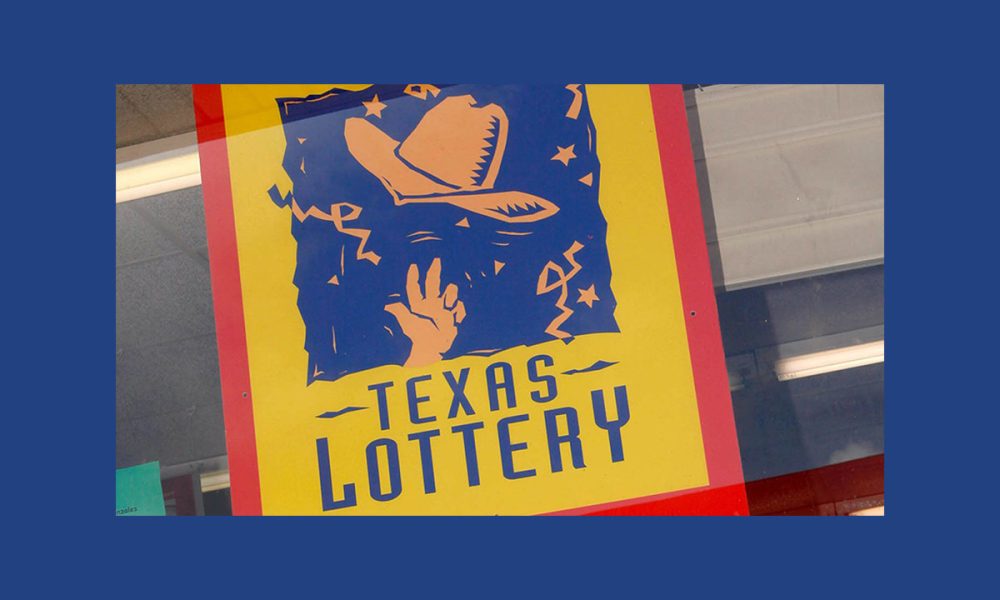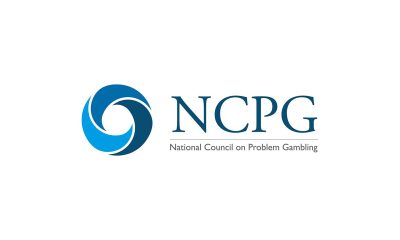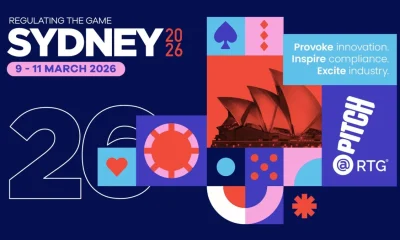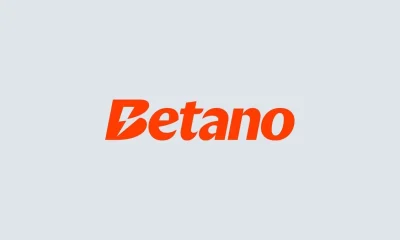Compliance Updates
Texas Lottery Moves to Ban Lottery Courier Services

Texas Lottery Commission Executive Director Ryan Mindell on Monday, Feb. 24, issued a Policy Statement, announcing that lottery ticket courier services are not allowed under Texas law and that the agency will move forward with proposed rule amendments prohibiting lottery courier services within the state.
The Policy is effective immediately and aligns with legislative efforts to address serious concerns raised by players and state leadership regarding the integrity, security, honesty, and fairness of lottery operations. Under the proposed amendments, a retailer that works in concert with a courier service would have their lottery ticket sales agent license revoked. The rule amendments will be formally proposed by agency staff to the Commission board at an open meeting scheduled for Tuesday, March 4, with the intent for the amendments to be adopted at an April open meeting following a 30-day public comment period.
Couriers are unregulated companies that take lottery ticket orders from customers online. Upon receipt of funds from a customer, the courier purchases lottery tickets from a licensed lottery retailer with whom the courier has a private business arrangement. In practice, the courier and the retailer are often located in the same building or office. The courier transmits a scanned image of the ticket to the customer and retains the ticket until it is determined to be a winning or non-winning ticket. Couriers charge a fee for their service to purchase and manage their customers’ tickets. These activities all occur without the oversight of a regulating authority to ensure that the public is protected from potential crime and other harms.
“The Texas Lottery was established to provide a secure and transparent system for players to purchase tickets in person from licensed brick-and-mortar retailers for the purpose of generating revenue for public education and veterans’ services in a responsible manner. Lottery courier services operating in Texas have been a significant concern for many of our stakeholders. Previously, the agency interpreted its authority as not extending to the regulation or prohibition of these services. Since I became executive director less than a year ago, I have been keenly focused on making changes to improve the public’s perception of Texas Lottery games and how they are played and operated. In recent days, our agency conducted a review of our authority under the State Lottery Act. As a result of this review and information from recent retailer investigations, the Commission will revoke the license of a retailer that works with or assists a courier service and we are moving to prohibit courier services in Texas to ensure all ticket sales comply with state law and agency regulation as well as to maintain public trust,” said Mindell.
The impact of lottery courier services has raised public concerns regarding consumer protection, compliance with state law, the proliferation of crime, and the potential for unauthorized expansion of lottery sales. In recent years, scrutiny over the role of these services has increased, with calls for regulatory action to ensure all ticket purchases remain within a clearly defined, secure, and enforceable legal framework.
“Our priority is to protect the security and integrity of the Texas Lottery and the public’s confidence in our games. By this rule proposal, the agency will take decisive action to ensure that ticket sales remain in full compliance with state law. Maintaining a well-regulated lottery system that serves the people of Texas is essential to fulfilling our mission of responsibly generating important revenue for public education and veterans’ services in our state. I look forward to adopting these rules and continuing our commitment to the people of Texas. The Texas Lottery Commission is dedicated to upholding the integrity of lottery operations and will work in full cooperation with the Legislature to implement any further changes deemed necessary,” Robert G. Rivera, Chairman of the Texas Lottery Commission, said.
The post Texas Lottery Moves to Ban Lottery Courier Services appeared first on Gaming and Gambling Industry in the Americas.
3 Oaks Gaming
3 Oaks Gaming Enters Spanish Market

3 Oaks Gaming, an established distributor of iGaming content, has entered the Spanish market after securing certification to supply its slot portfolio in the region.
This approval enables Spanish-licensed operators to integrate more than 20 of 3 Oaks Gaming’s games, bringing some of the distributor’s most recognised slots to local players.
Certified titles available include recent releases such as 4 Pots of Egypt: Hold and Win, Rush for Gold, and Egypt Power. The portfolio showcases 3 Oaks Gaming’s signature Hold & Win mechanic alongside Scatter Pays and its increasingly popular 3 and 4 Pot models, delivering engaging gameplay certified for the Spanish market.
Securing the Spanish certification represents a significant step in 3 Oaks Gaming’s ongoing European growth strategy, supporting its expansion across established and regulated markets.
By entering Spain with a robust, fully approved portfolio, the distributor underlines its commitment to compliance while offering operators content that is aligned with local market requirements and player preferences.
Krasimir Pankovski, Head of Sales at 3 Oaks Gaming, said: “Spain is a strategically important regulated market for us, and obtaining certification here marks an important milestone in our growth journey. By launching a diverse range of certified titles, we are giving Spanish-licenced operators the flexibility to offer engaging content while meeting the highest regulatory standards.”
The post 3 Oaks Gaming Enters Spanish Market appeared first on Eastern European Gaming | Global iGaming & Tech Intelligence Hub.
Compliance Updates
Dutch Regulator KSA Warns Operators Over “Early Payout” Feature

The Dutch Gambling Regulator (KSA) has contacted several online sports betting providers regarding incomplete information about the “early payout” feature. The “early payout” feature allows a bet to be considered won before the match has officially ended. This feature is not available in the event of a draw. The KSA found that several providers failed to communicate this sufficiently, making it appear as if players could also use this option for draws.
Early payout
The Early Payout feature allows players to declare their bet a winner if their team has a two-goal lead during the match, regardless of the final result. The odds for Early Payout bets are lower than those for regular bets. The problem arises when this option appears to be offered for draw bets, as there is no team with a lead.
Unclear information leads to confusion
Providers also promote lower odds for draws under the “early payout” feature. The providers’ terms and conditions then state that early payouts are not possible for draws, but this isn’t always clearly communicated when placing the bet. This creates confusion among players, who may assume that early payouts also apply to draws.
Obligation to provide clear information
Providers are required to provide clear and understandable information about the possible outcomes of a bet, including the associated terms and conditions. The KSA determined that providers were not complying with this obligation when providing information about the “early payout” feature. Providers that offer this feature have been contacted and have improved their communication so that players are now more clearly informed about the limitations of early payout for bets on draws.
The post Dutch Regulator KSA Warns Operators Over “Early Payout” Feature appeared first on Eastern European Gaming | Global iGaming & Tech Intelligence Hub.
3 Oaks Gaming
3 Oaks Gaming Secures Registration from MINCETUR to Enter the Regulated Peruvian Market

3 Oaks Gaming, an established distributor of iGaming content, has expanded its footprint in the Latin American market after securing registration from MINCETUR, allowing the company to supply 56 of its titles in the regulated Peruvian market.
This approval permits Peru-licensed operators to integrate a range of 3 Oaks Gaming titles, bringing some of the distributor’s most recognised and top-performing games to local players.
The registration marks an important step in 3 Oaks Gaming’s broader LatAm expansion strategy. By entering Peru with a fully approved portfolio, the distributor continues to strengthen its presence in regulated markets and support operators with localised content tailored to regional player preferences.
Krasimir Pankovski, Head of Sales at 3 Oaks Gaming, said: “Peru is one of the most dynamic regulated markets in LatAm, and achieving registration here significantly enhances our regional footprint.”
The post 3 Oaks Gaming Secures Registration from MINCETUR to Enter the Regulated Peruvian Market appeared first on Americas iGaming & Sports Betting News.
-

 Compliance Updates7 days ago
Compliance Updates7 days agoIllinois Gaming Board and Attorney General’s Office Issue more than 60 Cease-and-Desist Letters to Illegal Online Casino and Sweepstakes Operators
-

 Canada7 days ago
Canada7 days agoINCENTIVE GAMES PARTNERS WITH LOTO-QUÉBEC TO LAUNCH REAL-MONEY GAMES IN THE PROVINCE OF QUÉBEC, CANADA
-

 Australia7 days ago
Australia7 days agoRegulating the Game 2026 Sydney — One Month Countdown as Sector Leaders Anticipate Inaugural RTG Global Awards
-

 Always Up! x100007 days ago
Always Up! x100007 days agoRing in the Chinese New Year with BGaming’s Seasonal Promotion
-

 Latest News7 days ago
Latest News7 days agoLaunch Of A Fresh Online Casino Guide 2026
-

 Accra7 days ago
Accra7 days agoKaizen Gaming Launches Betano in Ghana — 20th Regulated Market & Responsible GameTech Expansion
-

 Affigates7 days ago
Affigates7 days agoSoftConstruct AI and Affigates Bring Cutting‑Edge Solutions to AIBC Eurasia 2026 in Dubai
-

 Compliance Updates7 days ago
Compliance Updates7 days agoDabble Continues to Expand U.S. Footprint with Launch in Arizona































